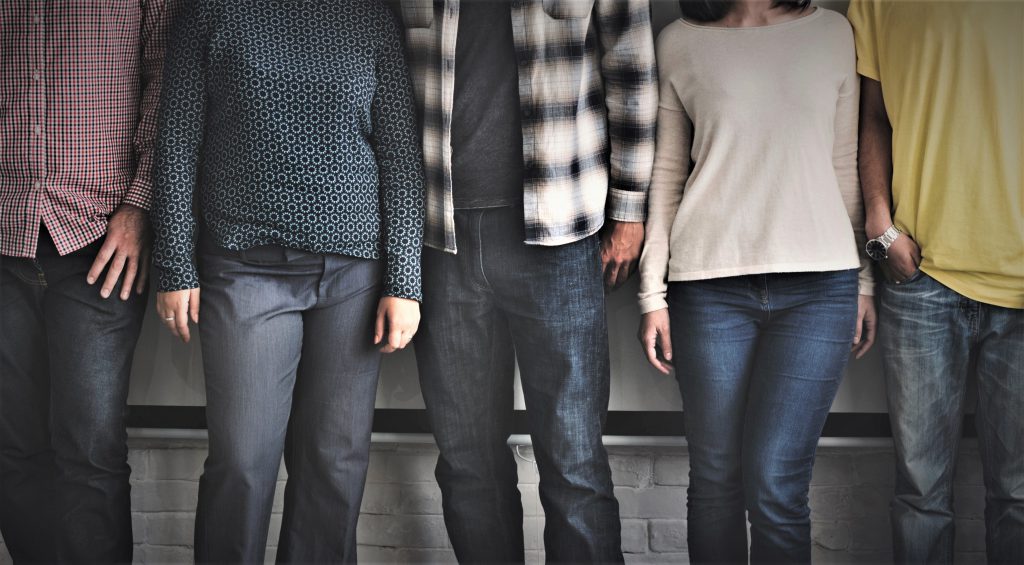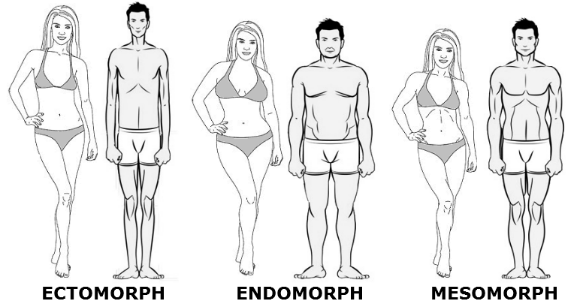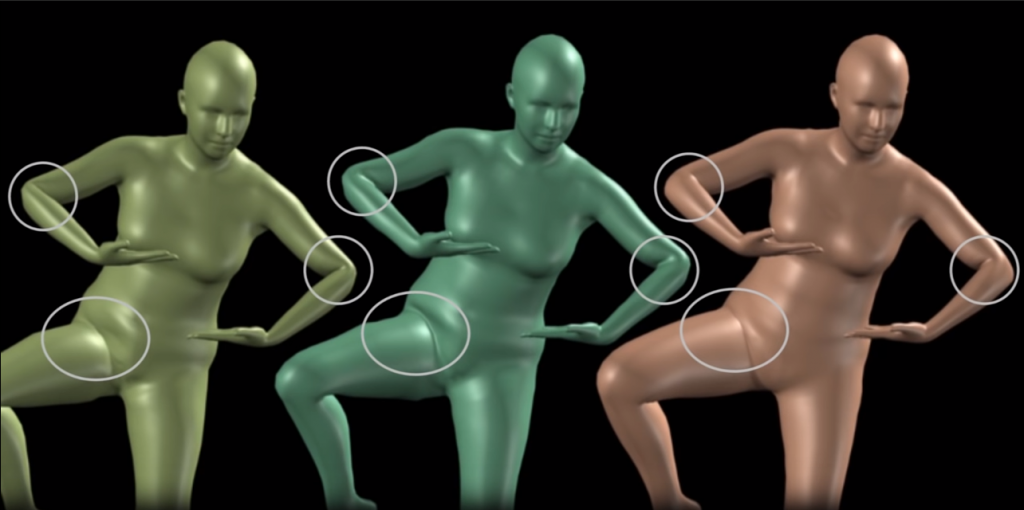
Have you ever made a snap judgment within the first few seconds of meeting a stranger? It might have been a conscious and deliberate response or just the opposite, subconscious and unintentional. Or maybe you’re not that type of person and you’re more likely to call it as it is and say:
“I’m not like that! I don’t judge a book by its cover.”
Some people base their opinions on stereotypes. It just seems more efficient and it’s certainly quicker to assume people’s personality traits based on their looks. For instance, stereotypically, blondes and muscle guys aren’t smart, skinny men in glasses are clever. It may be harmful and completely flawed, yet we do label each other this way.
But what does the science say about it? What kind of personality traits do we relate to certain body types?
Ectomorph, Endomorph, Mesomorph
William Sheldon, a professor of medicine, studied body shapes almost 80 years ago. He was a great people-watcher which helped him construct a classification system [1] that divided the body types into three categories: endomorph, mesomorph and ectomorph.

Then he went one step further and started looking for connections between the body type and the personality. Unfortunately, he was criticized for using poor methods in his research and in the end his results weren’t accepted as accurate and the question stayed open for next decades.
First impressions and the body type go together hand in hand
In 2008 those questions were the subject of another study [2] conducted by Ying Hu and his colleagues. This research integrated 76 undergraduate students from the University of Texas at Dallas who were presented with computer generated, 3-dimensional bodies.

Pictures of those body shapes were complemented with a list of personality traits coming from The Big Five (extraversion, agreeableness, conscientiousness, neuroticism, and openness to experience). The list included both positive and negative traits. The participants were supposed to look at the generated pictures with personality traits and decide whether the body shape matched those pictures. And what was the result?
Body weight
For both men and women body weight was related to the same personality traits. The participants linked heavier bodies with negative attributes, like laziness, stubbornness and carelessness.
On the other hand, the slimmer a person was, the more positive associations were made with that person, such as carefulness and self-discipline.
Those findings aplify another study [3] in which scientists were analyzing stereotypes about overweight people. Tanya Berry, from the University of Alberta’s Faculty of Physical Education and Recreation, asked participants to look at the pictures depicting different people and choose the word describing them.
When a thin person was seen lying down watching television, participants assumed they were just resting. But when they saw an overweight person relaxing, it was automatically assumed they were lazy and unmotivated.
After each photo a sedentary word such as “lazy” appeared. Later on participants were asked to say the colour of each word. With thin people participats didn’t have a problem. They were able to compe up with the color qucikly. But when a photo of an overweight person lying down appeared, the study participants paused. Tanya Berry concluded that the slow reaction was due to stereotyped thoughts. Participant were thinking more about the person being lazy rather than thinking about the colour of the word.
Character
Traits like dominance, extraversion and feistiness were associated with a more masculine wide-shouldered body type (mesomorph) in case of men and a more feminine pear-shaped type in case of women.
On the other hand, rectangular and heavy male bodies (endomorph) were identified with passiveness. The same applied for women. Such body shapes were also equated with being easy-going and trusting.
We judge people by their body shapes
Even though some people still believe that we don’t really judge others by appearances and first impressions, that’s not the case. We actually do rely on first impressions and looks.
Of course we need to take into account that for the purpose of this research the pictures were computer generated and they didn’t present the more complex and significant features, such as facial expressions etc. But the purpose was to examine a correlation between the body shape and the first impression.
Conclusion
We tend to associate positive personality traits with slimmer bodies. Rectangular body shapes seem to be connected with passive, shy but at the same time trusting and easy-going people. Pear-shaped women and masculine men are seen as extraverted and dominant. Those are just a few examples of how we judge people. I know it’s superficial but this is how our brain is making snap judgements based on limited information.
Now tell me, what are your experiences with judging and being judged?
References
[1] Sheldon, W. H., Stevens, S. S., & Tucker, W. B. (1940). The varieties of human physique. Harper.
[2] Hu, Ying & Parde, Connor & Hill, Matthew & Mahmood, Naureen & O’Toole, Alice. (2018). First Impressions of Personality Traits From Body Shapes. Psychological Science. 10.1177/0956797618799300.
[3] Berry, Tanya, Spence, John C. (2009). Automatic activation of exercise and sedentary stereotypes. Research Quarterly for Exercise and Sport, 80 (3): 633-640.